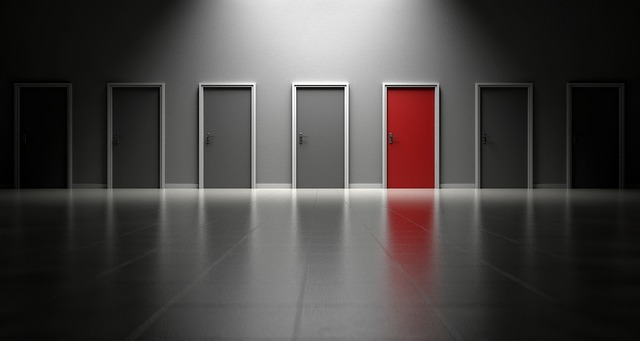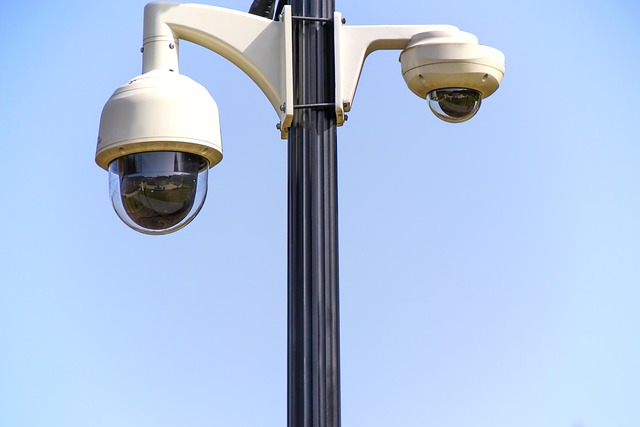Before selecting a security camera, understand your home's unique needs regarding location, vulnerabilities, and monitoring requirements. Evaluate advanced features like AI analytics, storage capacity, and connectivity options to ensure an effective camera matching your specific needs (coverage area, motion detection, video quality). Key features to consider include resolution (1080p or 4K), adjustable motion sensitivity, and night vision capabilities. Set a budget, define essential features based on personal needs, and evaluate costs including cloud storage. Carefully assess installation requirements, compatibility with your existing system, and choose from reputable brands like Ring, Arlo, Google Nest, SimpliSafe, and Alarm.com for comprehensive security solutions.
Choosing the right security camera for your home is a crucial step in enhancing your peace of mind and family’s safety. This comprehensive guide will walk you through the process of selecting an ideal home camera that suits your needs. From understanding your home security requirements to exploring different types of security cameras, key features to consider, and budgeting tips, we’ll ensure you make an effective security camera selection. We’ll also cover installation, compatibility, and popular brands, helping you navigate the options and choose the best security system for your home.
- Understanding Your Home Security Needs
- Types of Security Cameras Explained
- Key Features to Look for in a Home Security Camera
- Setting a Budget for Your Ideal Home Camera
- Installation and Compatibility Considerations
- Popular Brands and Systems to Consider
Understanding Your Home Security Needs

Understanding your home’s unique security needs is the first step in finding the right security camera. Consider factors like size, layout, and outdoor versus indoor requirements. Do you live in a quiet suburban neighborhood or a bustling urban area? Are there areas of your home that are particularly vulnerable to theft or vandalism? Answering these questions will help determine the ideal features for your home security selection.
The best security system isn’t one-size-fits-all. Think about the level of monitoring you need—self-monitored or professional—and whether you want basic motion detection or advanced AI-powered analytics. Additionally, storage capacity and connectivity options, like Wi-Fi or cellular backup, are crucial considerations when choosing security cameras. These factors will ensure an effective security camera that meets your specific needs.
Types of Security Cameras Explained

When considering the right security camera for your home, understanding the various types available is crucial for making an informed home security selection. Modern security cameras fall into several categories, each offering unique features and benefits that cater to different needs and preferences. The ideal home camera should align with your specific requirements in terms of coverage area, motion detection capabilities, video quality, and connectivity options.
Wireless cameras have gained popularity for their ease of installation and flexibility, allowing you to position them virtually anywhere without the hassle of running cables. On the other hand, wired systems provide more stable connections and often offer higher resolution and better performance. Additionally, hybrid models combine the advantages of both, giving you the best of both worlds. When choosing security cameras, consider factors like resolution (HD or 4K), night vision capabilities, and cloud storage options to ensure an effective security system that keeps your home safe and provides peace of mind.
Key Features to Look for in a Home Security Camera

When searching for the right security camera for your home, several key features should guide your home security selection. Firstly, consider resolution; a higher resolution ensures clearer footage, making it easier to identify intruders or potential issues. Look for cameras offering 1080p or even 4K resolution for the ideal home camera.
Additionally, motion detection is crucial for an effective security system. Ensure the camera has adjustable sensitivity settings to avoid false alarms and false positives. Night vision capabilities are also essential; infrared or passive infrared (PIR) technology allows cameras to capture clear images in low-light conditions. Remember that these features combined will contribute to your best security system overall.
Setting a Budget for Your Ideal Home Camera

When it comes to selecting the right security camera for your home, setting a budget is a crucial first step. The home security selection process can be overwhelming given the wide array of options available today—from basic models offering live streaming to advanced systems with facial recognition and motion detection capabilities. It’s important to define what features are essential for your ideal home camera based on your specific needs, such as monitoring children, pets, or a large property. This will help you narrow down the best security system for your budget.
Understanding that prices can range from affordable options under $100 to high-end systems costing several hundred dollars, setting a clear budget will guide your choosing security cameras effectively. Consider not only the cost of the camera itself but also ongoing expenses like cloud storage fees and subscription plans for remote access. With a defined budget in mind, you can explore different brands and models knowing exactly what to look for in terms of quality, performance, and affordability.
Installation and Compatibility Considerations

When considering the right security camera for your home, installation and compatibility should be at the forefront of your mind. Different cameras have unique requirements, from mounting heights to power sources. Ensuring your chosen camera is compatible with your existing home network and security system is crucial for seamless integration.
Take time to evaluate your property’s layout and identify potential blind spots. Consider factors like lighting conditions, obstacles such as trees or furniture, and the camera’s field of view. Additionally, check if the camera requires wired or wireless connectivity, and assess your internet speed to guarantee smooth video transmission. With these home security selection considerations in mind, you’ll be well on your way to choosing an ideal home camera that forms part of an effective security system.
Popular Brands and Systems to Consider

When it comes to choosing security cameras, several popular brands and systems stand out as reliable options. The right security camera for home depends on your specific needs, but some renowned names offer comprehensive solutions. For instance, Ring and Arlo are prominent players known for their user-friendly apps and affordable, high-quality cameras. These brands often integrate with smart home devices, allowing for remote monitoring and control via smartphone or tablet.
Another top choice is Google Nest, which combines advanced camera technology with robust security features. Their cameras offer clear, vivid footage, motion detection, and 24/7 recording capabilities. Moreover, systems like SimpliSafe and Alarm.com provide a full-scale home security selection, including cameras, door/window sensors, and alarm monitoring services, making them ideal for comprehensive protection. These brands cater to various budgets and preferences, ensuring an effective security camera solution tailored to your home’s requirements.
